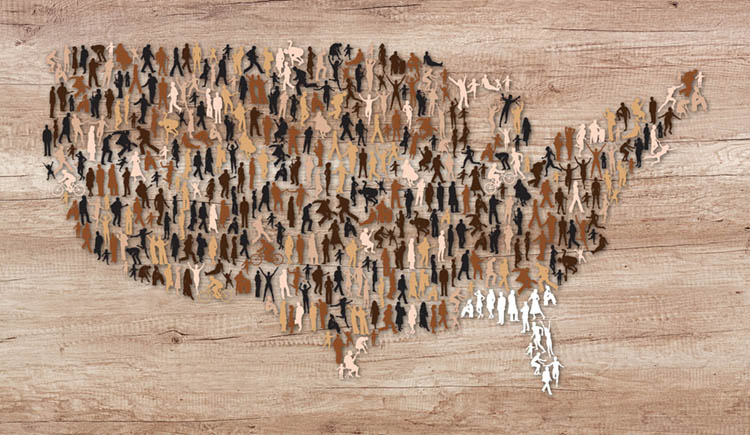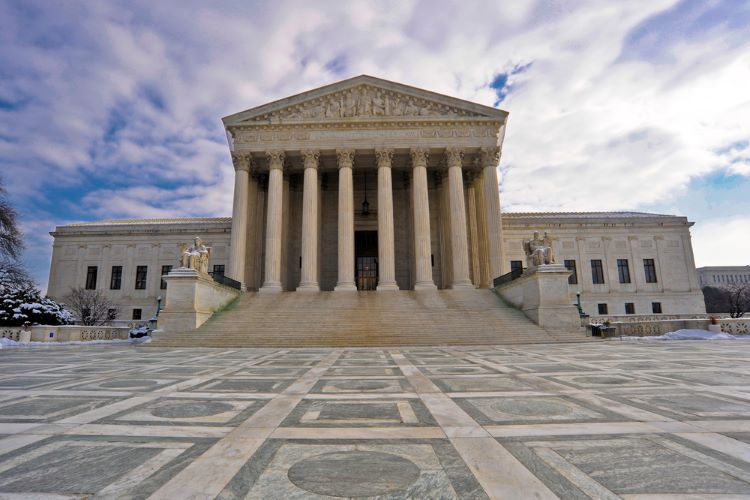Florida Supreme Court order on diversity in CLEs devalues the legal profession’s inclusion goals, experts say

Illustration by Sara Wadford/Shutterstock
Widespread opposition has emerged regarding a controversial order issued by the Florida Supreme Court in April prohibiting approval of continuing legal education that uses “quotas based upon race, ethnicity, gender, religion, national origin, disability or sexual orientation.”
The Florida Bar has interpreted the opinion to mean that all programs with diversity requirements that were not previously approved before the order are ineligible for CLE credit, including ABA courses. Since 2017, the ABA has implemented a policy that requires diversity for panel presenters at CLE courses. The policy is in furtherance of the organization’s goal to eliminate bias and enhance diversity in the legal profession and to foster the participation of lawyers from diverse backgrounds who historically may not have been selected for panels.
“It seems that the Florida Supreme Court had a knee-jerk reaction to a policy aimed at creating more diversity among CLE speakers,” says Peter A. Joy, a legal ethics professor at Washington University Law School in St. Louis. “Unfortunately, ‘diversity’ seems to generate a negative reaction by some, and the court’s ruling feeds into the culture wars we have been experiencing.”
The court took issue with a policy adopted by the Business Law Section of the Florida Bar that sought to diversify its presenters at CLE courses by requiring a certain number of faculty meet its diversity criteria. In September 2020, the BLS required that there be diversity for CLE panels—one “diverse” panelist for groups of three or four, two diverse members for groups of five through eight speakers, and three or more diverse panelists for groups of nine or more.
Like the ABA, the BLS defined diversity as members of groups based on race, ethnicity, gender, sexual orientation, gender identity, disability and multiculturalism. However, the policy provided exceptions: if a diverse panelist could not be found after a “diligent search,” for example.
Despite this, the Florida Supreme Court described the policy as imposing “quotas” in a way that violates nondiscrimination principles. “Quotas based on characteristics like the ones in this policy are antithetical to basic American principles of nondiscrimination,” the court wrote in its per curiam order.
“The opposition to diversity and inclusion in the U.S. takes many forms,” Joy says. “Here, the Florida Supreme Court seized on what it characterized to be ‘quotas’ in the Business Law Section’s policy to promote speaker diversity.” Joy notes that the ABA’s policy has been in place for years without any adverse effects on panel participation.
The court cited U.S. Supreme Court opinions Grutter v. Bollinger (2003) and Regents of University of California v. Bakke (1978), which invalidated affirmative action programs at a law school in Michigan and a medical school in California, respectively. Both those decisions restricted affirmative action policies that were designed to address a lack of racial diversity in higher education. But some observers say the court is painting an inclusive diversity policy as an unfair quota and is taking action to limit CLE opportunities without any official complaints. In an unusual move, the court struck down the diversity policy on its own—without a “case or controversy” presented by an injured party that would trigger litigation.
The Florida Supreme Court then amended its rule for the Florida Bar that governs CLE course approval by adding the following language: “The board of legal specialization and education may not approve any course submitted by a sponsor, including a section of the Florida Bar, that uses quotas based on race, ethnicity, gender, religion, national origin, disability or sexual orientation in the selection of course faculty or participants.”
The court gave 75 days for “interested persons” to file comments with the court.
Organizations and individuals filed comments opposed to the rule change and supporting diversity goals in CLE. The Miami-Dade County Bar Association emphasized that the BLS’ CLE policy did not mandate racial quotas and “does not exclude other nonminority participants.” The association explained that guidance from the ABA and BLS function not as quotas but “rather as an aspiration to diversity and encouragement to include minority experts on legal subjects.”
The American Bar Foundation filed comments opposing the Florida Supreme Court’s action, disagreeing that the policies of the BLS and the ABA imposed racial quotas, a loaded term that doesn’t describe the requirements.
“The Florida Business Law Section’s CLE panel policy is not a racial quota. It imposes no requirement that any particular number of panel slots be filled by people of certain races. The diversity requirement can be met by considering any number of factors other than race—gender, sexual orientation, gender identity, disability—none of which the supreme court has indicated requires the same level of scrutiny under the equal protection clause.”
The Association of Professional Responsibility Lawyers was another organization that urged the Florida Supreme Court to rescind its order and remove its amendment to the rule on CLE courses, pointing out that “the new rule excludes a large and growing number of worthy CLE programs both in and outside of Florida.”
However, Blaise Trettis, public defender for Florida’s 18th Judicial Circuit, which covers Brevard and Seminole counties, wrote comments in support of the Florida Supreme Court’s amendment. “It was necessary for the court to intercede on its own motion in the instant case to prevent BLS from using its unconstitutional CLE instructor policy,” Trettis wrote. “The court’s rejection of quotas, also called set-asides, based on race, sex, ethnicity, sexual orientation, gender identification [and]multiculturalism, reflects the opinion of the great majority of people who reject such quotas.”
But the overwhelming majority of those filing comments, including 85 law school deans, asked the court to reconsider and reverse its ruling.
Professional responsibility and legal ethics experts questioned the motivation for the sua sponte decision. They argue diverse CLE panels are broad policies of inclusion, not exclusion—and the court’s ruling was a heavy-handed solution in search of a problem.
“The court seems to have focused on a distaste for [what it calls] a quota system without fully exploring the order’s impact on both the value of diversity and the ability of Florida lawyers to obtain meaningful continuing education credit from various national organizations,” says Miami-based legal ethics attorney Jan L. Jacobowitz.
In comments to the ruling, the ABA argued there is “no discernible beneficial end” to blocking Florida attorneys from availing themselves of CLE courses that promote diverse panels. It also said its policy does not run afoul of the equal protection principles set forth in the Constitution. But to allay any further concerns, the ABA reviewed its diversity policy and added language it says should overcome any misperception and clarify the goal of inclusion: “If a CLE panel is not otherwise diverse, program organizers will add panel participants who bring diversity to achieve the goal of the policy.”
The Florida Supreme Court has outlined no timeline for responding to public comments and has not indicated if it will respond at all.
David L. Hudson Jr. teaches at Belmont University College of Law. He is the author, co-author or co-editor of more than 40 books. For much of his career, he has focused on the First Amendment and professional responsibility.



